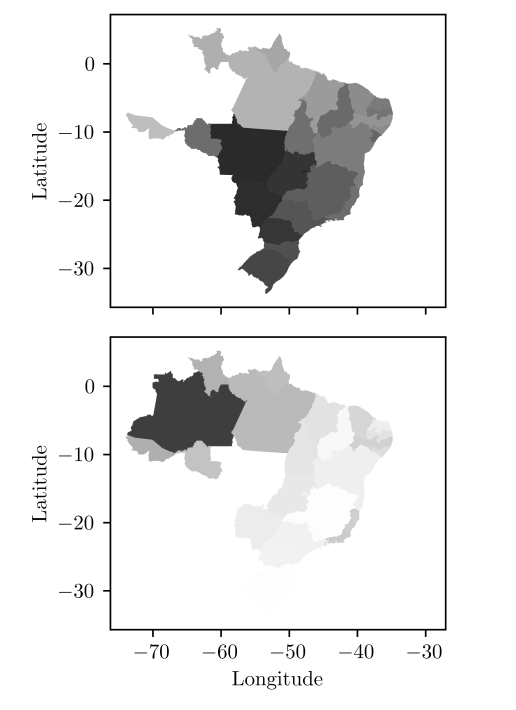COVID-19
Epidemiological modeling
Mathematical models for the evolution of epidemics range from simple deterministic models of continuous time to sophisticated computer simulation schemes. As early as 1766, Daniel Bernoulli developed a model for the study of smallpox. In the past century, compartmental models have been proposed in which the population is divided into categories such as susceptible, exposed, infected, removed, and whose interaction is described in terms of differential equations. An alternative strategy is empirical modeling, in which the model is constructed from observations of the behavior of a system and without specific assumptions about the principles that rule its dynamics.
This project intends to contribute to a mathematical reference base on COVID-19 for studying its evolution dynamics, and which could be used for planning public policies of prevention and combat.
Publication
JC Lucero, “Identification of COVID-19 mortality patterns in Brazil by a functional QR decomposition”, Biophysical Reviews and Letters 17, 33–41 (2002). doi, arXiv
Abstract: The subset selection problem of linear algebra is applied to identify independent patterns of COVID-19 evolution within Brazil. The data consist of a set of mortality curves in states of Brazil. A subset of the most independent curves is selected by using a functional version of the QR matrix decomposition technique with column pivoting. The selected subset is used next as a basis to represent the remaining curves filtering out any data redundancy. For each independent curve, an associated epidemiological region of influence is defined. The results show two main independent curves with a similar two-peak pattern and a 50-day shift between the patterns. Two main epidemiological regions are next identified: one encompassing most of the country from the center and northeast states to the south, an another one containing the Amazonian region at the northwest.

Support
Grant from the Committee of Research, Innovation, and Extension to Combat COVID-19 (COPEI) of the University of Brasília, 2020-2021.